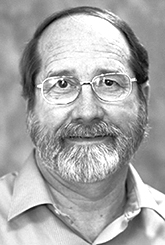Christians receive historical and theological truth from the Bible and receive scientific truth from the natural world. The Bible has God as its author, and in its pages God supplies us with theological truths that are grounded in historical events. Immediate divine creation by the Word of God, the parting of the Red Sea, the virgin birth of Jesus — along with His sacrificial death and resurrection — are examples of historical facts that anchor theological truths.
God also is the creator of the universe, and a wealth of information is derived from scientific study. When properly understood, the information from these two sources will not be in conflict, since all truth is God’s truth. Proper interpretation of both scientific evidence and the Bible is the key to avoiding conflict.
The geocentric/heliocentric debate serves as a prime example of conflict arising from biblical misinterpretation. For hundreds of years, the scientific consensus was geocentric — that the sun revolves around a stationary earth. This model served as the predominant cosmological system in many ancient civilizations such as ancient Greece, including the systems of Aristotle and Ptolemy. This model was derived from science, not religion.
In 1607, using the newly invented telescope and building on previous theories of Nicolas Copernicus, Galilei Galileo, a committed Christian, produced some evidence for the heliocentric model — that the earth revolves around the sun. Galileo’s theory was not immediately accepted for two reasons. First, his initial scientific evidence was inconclusive. Second, this model seemed to conflict with biblical passages such as Joshua 10:12, Psalm 19:4-6, and Ecclesiastes 1:4-5. These verses suggest that the sun revolves around a stationary earth. Thus the Roman Catholic Church initially opposed Galileo on both scientific and theological grounds.
On this issue, the Church erred in assuming that the Bible purported to teach scientific truth rather than historically grounded theological truth. To properly interpret the Bible, one must recall that the Bible was written by and to people in a pre-scientific age. Living hundred of years prior to the scientific revolution, the Hebrew people understood the universe as it appeared to the human eye. From a human perspective, the earth appears stationary and the sun appears to be in motion. Had a biblical writer offered a scientific account of an event, he would have confused his reader. For example, had Joshua written that the earth rather than the sun stood still (Joshua 10:12), the Hebrew people would have been confused, since they believed the earth is always still. Even today, we speak of the sun rising and setting because it appears to us that way. The ancients spoke that way because that is all they knew.
In order to avoid a Bible/science conflict, Christians must be aware that God accommodated His revelation to pre-scientific understanding and never intended to offer a technically accurate description of the universe. God provided His people with the Scriptures in order to convey great historical, moral and theological truths. He had no intention of correcting their pre-scientific understanding of the universe. For example, when Jesus said that the mustard seed is the smallest of all seeds (Mark 4:30-32), He was not offering a botany lecture but was using the common person’s understanding to make a point about the kingdom of God.
Conflict also arises when scientific data are misinterpreted. A prime example of such misinterpretation involves the evolutionists’ denial of the biblical account of creation. Their failed prediction that the discovery of thousands of transitional forms would fill the gaps in the fossil record reveals their misinterpretation of the geological data. Thus, Christians must carefully evaluate the tentative conclusions of science, being aware that the geocentric models of Aristotle and Ptolemy represented the best of scientific thought of their day. Even the once widely accepted concepts of Newtonian physics have been replaced with more modern theories.
While there is no ultimate conflict between Christianity and science, there is indeed a conflict between Christianity and naturalism, a worldview that denies all spiritual realities. Christianity, not naturalism, supports the philosophical foundations of science. That the universe is orderly and rational and that the human mind has the ability to grasp truth find no support in atheistic naturalism. On the other hand, an orderly universe and a human mind that can comprehend it are precisely what we would expect from a God who created both the universe and man in His own image.
Just as science provides us with some truths that are not found in the Bible, likewise the Bible provides us with essential truths that lie outside the realm of science. Spiritual and moral truth elude the scientific method. Science can provide the knowledge necessary to build atomic bombs but never the moral knowledge of whether or not to use them.
Christians should embrace scientific knowledge in that it helps us understand God’s creation but should never do so uncritically. Scientific knowledge is highly informative but should never cast doubt on the historical, moral and theological truths of God’s inerrant Word. When the Bible and science are properly interpreted, there is no final conflict.
— Walter Johnson is dean of the College of Christian Studies at North Greenville University.
